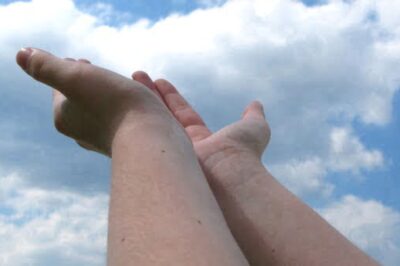When she was 7 years old, Laurette Willis was tickled when her mother began teaching yoga classes from home. For years, the eager child modeled yoga postures before college students and eventually instructed her own classes.
But for Willis, what seemed carefree soon became a stepping-stone to something sinister. “It seemed so stress-relieving and wonderful, but yoga opened the door to my being involved in the occult for 22 years,” says Willis, who explains that she dabbled in “everything from A to Z,” including astrology, Ouija boards and Zoroastrianism, an ancient Persian religion.
After accepting Christ in 1987, Willis designed Praise Moves, which she describes as an alternative to yoga. Created with help from her husband, Paul, it combines Scripture with deep stretching and gentle movement.
“I said, ‘Lord, it’d be wonderful if there was another way to exercise, something sort of like yoga, but I don’t want to have anything to do with yoga,'” says Willis, who attends Calvary Assembly of God in Tahlequah, Okla. “All of a sudden, I saw it in a flash. I saw it as not Christian yoga but an alternative.”
Praise Moves, available on DVD, is finding success amid a growing interest in yoga among Christians. Churches across the country are hosting yoga classes that substitute Christ for the names of Hindu gods and encourage participants to meditate on Scriptures instead of chanting.
Susan Bordenkircher, developer of a Christian yoga video series called Outstretched in Worship, says her Christ-centered yoga classes direct participants toward God, not false gods. And the instruction can serve as an evangelistic tool. “If someone who’s not a Christian is practicing yoga, we can give them the opportunity to see God through what we’re doing,” she says.
Bordenkircher began leading Christian yoga classes at her Methodist church years ago, and they became so popular that she produced a video in 2004. Though she doesn’t change the names of postures, she says her technique undergirds yoga with a Christian philosophy.
“The way that we change it is mainly about the intentionality, what the purpose is for why it is practiced,” Bordenkircher says. “We’ll start with the affirmation of faith. We raise our hands. We use Scripture as prayers. We use Christian music.”
Praise Moves is similar. The two-hour video includes a myriad of postures with names such as the Vine, the Cross and the Prayer Warrior, each corresponding to a specific Scripture. But Willis stresses that her routine is not yoga-based, since she discourages all forms of yoga.
“I believe ‘Christian yoga‘ is an oxymoron, a contradiction in terms,” she says. “It would be like saying, ‘I’m a Christian Buddhist.’ It doesn’t work.”
Arguing that Hinduism cannot be separated from yoga, Willis points to yoga postures as one example. “These postures are offerings to the 330 million Hindu gods,” she says.
Bordenkircher says yoga predates Hinduism and the Eastern mysticism it is often associated with. “It was set up as a lifestyle, a framework for your lifestyle that involves dietary concerns, physical concerns,” she says. “The spiritual element was just one part of it, and that spiritual element didn’t revolve around one particular deity or one particular religion.”
Both women are working to broaden their reach. Bordenkircher has released a book, Yoga for Christians. And Willis is spreading her Praise Moves routine around the world, with certified instructors in Germany, the United Kingdom and Singapore. She also plans to develop Praise Moves programs for children, the elderly and pregnant women.







Leave a Comment
You must be logged in to post a comment.